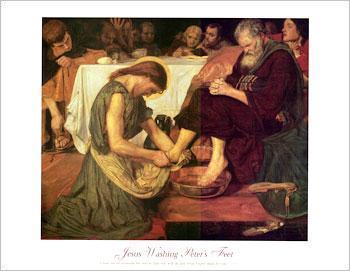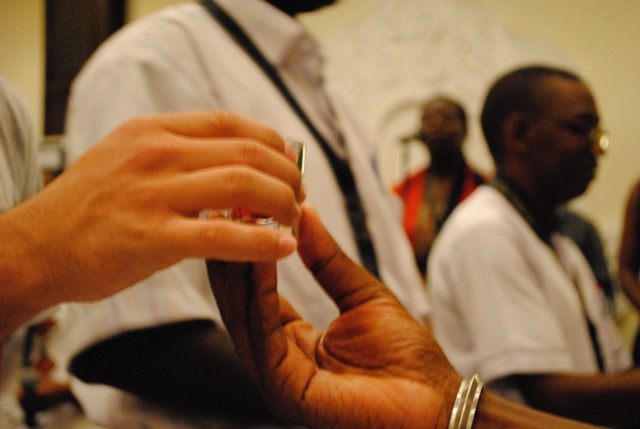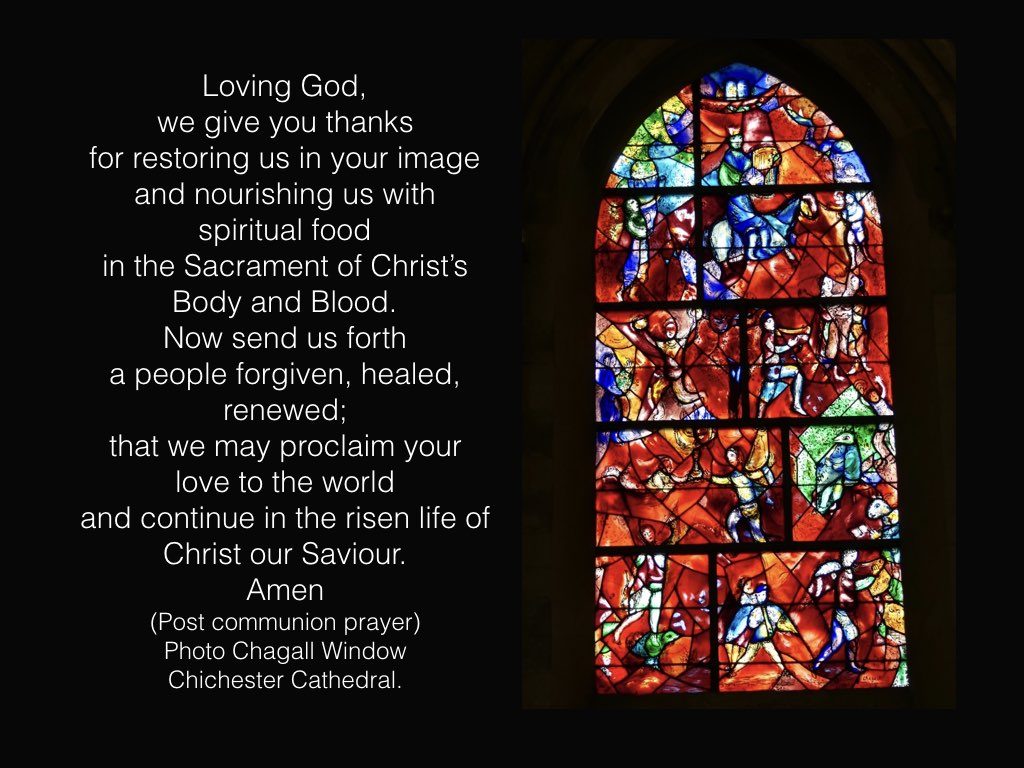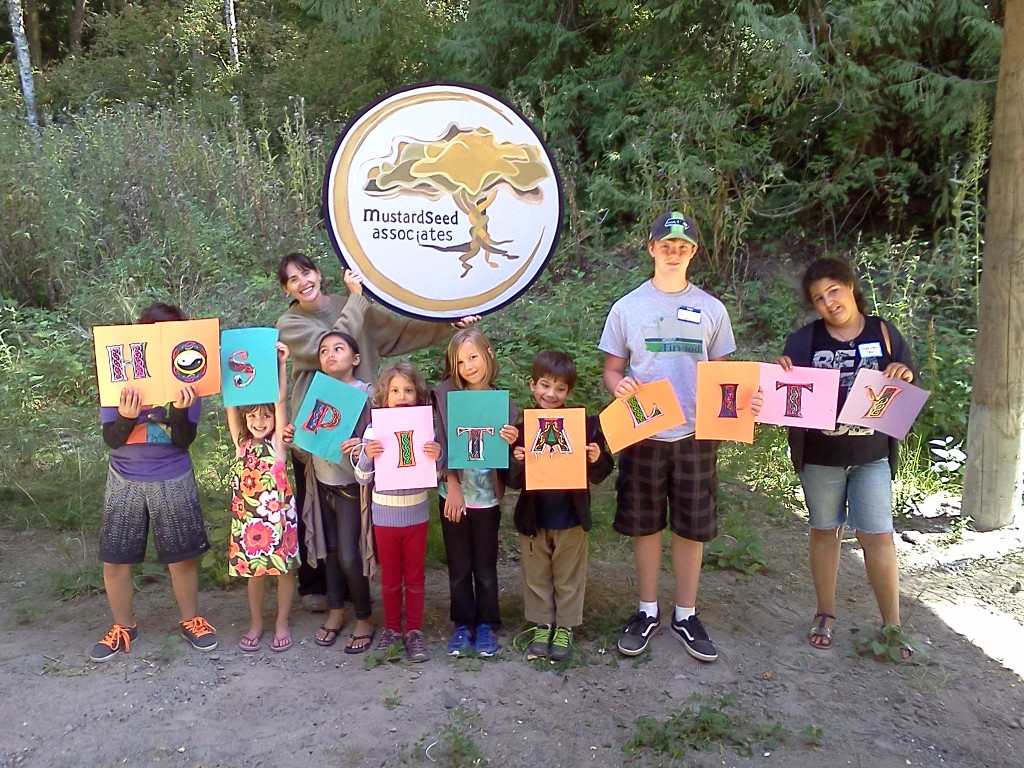Therefore I tell you, do not worry about your life, what you will eat or drink; or about your body, what you will wear. Is not life more than food, and the body more than clothes? Look at the birds of the air; they do not sow or reap or store away in barns, and yet your heavenly Father feeds them. Are you not much more valuable than they? Can any one of you by worrying add a single hour to your life? Mt. 6:25-27
Anxiety, fear, worry. They’re a triple threat that can leave us paralyzed. Sometimes they latch onto our life’s journey because of the circumstances around us. Other times it’s inner conflict.
I grew up as a worrier and it’s taken years to find peace. My worry spilled out into anger and I punched more than one hole in a wall. My worry took the form of self-doubt and low self-esteem, affecting the relationships around me. I was jealous in my relationships and untrusting of others. Although I had a loving, stable family, I didn’t know inner peace.
God’s desire for us, our families, our community, and world, is that we would live in:
And all these things are brought together in one Hebrew word, shalom. This is my favorite word in scripture because it sums up God’s desire for the whole creation. But anxiety, fear, and worry rob us of shalom.
How can we even imagine living shalom in today’s world of conflict and division?
“Therefore, I tell you, do not worry about your life…”
The word “therefore” points us back to what has come before. In this text, it’s the bulk of Jesus’ “Sermon on the Mount”, which begins in chapter 5 with the “Blessed are you’s”, the Beatitudes.
“Do not worry”, Jesus says, because you will be blessed when you are poor, when you lament, when you are meek, humble, kind and forgiving. You will be blessed when you strive for righteousness and justice, when you are compassionate and merciful, when your heart is pure, when you work for peace and reconciliation. Even when you are persecuted because of your work for justice, healing, and reconciliation in the world, you will be blessed.
All of these actions reflect shalom. Shalom is not a passive word. Shalom is active engagement with the people and world around us. To hammer this home, Jesus follows the Beatitudes by telling us to be salt and to be light in this world! Don’t just be in the world, make it better!
“Therefore, I tell you, do not worry about your life…” This “therefore” also reflects back to the next part of Jesus’ message on the mount as he challenges us to reimagine how we live, and it’s a radical challenge indeed!
“You have heard that it was said, you shall not murder; BUT I SAY TO YOU, do not be angry without cause, do not insult, do not say to another, ‘You Fool!’, You idiot!” Instead, if there’s division and harm, actively work for healing and reconciliation!
“You have heard it said, ‘do not commit adultery’, but I tell you everyone who objectifies another has already committed adultery in his heart.”
“You have heard it said, ‘An eye for an eye and a tooth for a tooth’, but I tell you, do not retaliate but instead bear injustice in such a way that you reveal it for what it is.”
“You have heard it said, ‘love your neighbor but hate your enemy’, but I tell you, love your enemies as well. Show them the same grace and love you’ve received from God, for this is the road to following in the way of God in the world.”
These are extremely difficult challenges, especially in today’s divisive political climate. Sometimes I just want to live in my anger, resentment, and fear. Shalom can be a lot of work!
- “But what if I think they really are a fool?”
- “How can I possibly love someone who supports such injustice in our world?”
- “I can’t believe that idiot voted for…” you fill in the blank.
- “I’m so upset with this person I can’t help but desire something awful to happen to them!”
The answer to all of these attitudes and more, refer back to the beatitudes. Your worry and anger will get you nowhere and will only increase division, anxiety, and fear. But blessed are you when you actively engage in the purposes of God, in shalom, for the whole creation… even for your enemies.
Therefore, I tell you, do not worry about your life…” This line also refers back to the part of Jesus’ sermon where he tells us how to pray – what we know as “The Lord’s Prayer”:
- God in heaven – we begin by recognizing who’s in charge and who’s in control.
- Next, we pray for God’s purposes to come, to prevail here on earth, in our cities, communities, and homes.
- Give us today our daily bread. Jesus instructs us to trust God for our daily needs.
- Finally, and to me this is one of the scariest texts in scripture:
- “Forgive us our trespasses, our debts, our transgressions against others… IN THE SAME WAY THAT WE FORGIVE OTHERS.” Jesus continues: “For if you forgive others their transgressions, your heavenly Father will also forgive you; but if you refuse to forgive others, neither will your heavenly Father forgive you.”
The way of shalom includes radical forgiveness.
It appears that actively pursuing the ways of God, the way of shalom, in all of life is pretty darn important to Jesus!
Join me tomorrow for part two of “Shalom in a World of Conflict” as we explore the rest of Jesus’ sermon and look at how others are actively living shalom in our world today.
by Christine Sine
I am sick to my soul as I read the news about racist violence in Charlottesville, Va. I am sick to my soul as I read about violence in Venezuela and Syria. I am sick to my soul with the continuing plight of refugees and immigrants. And I am sick to my soul as I read about the growing tensions between North Korea and the U.S. Will the violence ever end we wonder? Will peace ever come to our earth we wonder? The health, wholeness and shalom of God’s promises seem so far away and even our prayers feel inadequate.
Today as I read through our Episcopal liturgy I felt hope however and wanted to share these words from an alternative communion liturgy with you. This is what Christ is about. This is what Christianity is about. And this is what the shalom of God looks like and this is what God wants our lives to be committed to. Unfortunately I do not know where this comes from and our rector didn’t either:
Holy One, we gather this day as one people, members of the same body, grateful for your many gifts and carrying the hope within us for a world filled with love. This vision was given by you, from the very beginning of your creation.
You made the earth, and all that lives on it. You inspired prophets and shepherds, widows and slaves, to seek liberation from all that oppresses, so that we might be released to love fully. You became incarnate in Jesus Christ, so that through him we might experience the depth and width of your unquenchable love.
While Jesus lived among us he stood up for women and children, he touched the untouchable, healed the sick, and welcomed those who had given up hope of being included. Through him we see a path not only to our own freedom, but a path to the liberation of the whole world. He taught us that it will not be in the brutality of violence that our world will be saved.
Rather, it will be in showing kindness to our neighbour, in standing up against injustice, in returning hate with love, in transforming one heart at a time. It will be in the simple but holy task of dining together, sharing bread and wine, truly seeing one another as beloved by you.
Another great resource is this litany from Fran Pratt. It was written specifically for Charlottesville.
What is Your Response.
Read through these words several times. What stands out for you? How is God prompting you to respond to stand against the violence in our world?
by Lilly Lewin
As we consider the Shalom of God this month, one of the first things that came to mind, after savor, was the gift of WONDER!
Jesus says: “Let the little children come unto me.” And he places a child in the midst of his followers and says that the Kingdom belongs to the children. It is easy for children, they still have the gift of WONDER. Jesus also says that we need “ears to hear and eyes to see.” “Let he/she who has ears let them hear…”
I love Eugene Peterson’s version in The Message Bible…
“But you have God-blessed eyes—eyes that see! And God-blessed ears—ears that hear!”
I believe that our world needs to know, needs to experience the Wonder again in order to experience the shalom of God.
When I was in college I had a date with a guy who took me out for coffee and one of his first “get to know you questions was “ when you were a kid, did you color inside the lines, or outside the lines?” My answer was “I created my own coloring book!”
I didn’t know anything about the Ennegram back then, but I am a “7,” and this totally fits. Sevens are known to bring pixie dust wherever we go, and we are always on the look out for an adventure.
The thirteen grandchildren on my side of the family now expect me to bring my Mary Poppins bag filled with everything from crayons and stickers to sharpies, and post-It notes and maybe even bubbles, and always snacks. I don’t ever want to be bored or want anyone else to be bored either! Often my husband says that I’m really just five-years-old because I get really excited about a vista or buying balloons, and giving them away to people just for fun. My favorite part of the art museum is the part that is for kids and hands on learning. I am wired to see the fun and wonder in life. I know not everyone is wired like I am. And I know that there is a lot of suffering and conflict in our world and that it is often hard to see the wonder around us or find the joy in the hardness of life. Too often we miss the wonder because we get blinded by fear, anxiety, and too much conflict on social media.
Most people have to turn things off to get to WONDER.
If you are a production driven, achiever kind of person, you are checking your list off each day and typically taking time for WONDER is not on the list.
WONDER gets pushed out of life.
So you will need a change of venue.
And you might need to find some friends who come by WONDER naturally and start hanging out with them.
What are you interested in that brings you joy?
How did you experience the gift of WONDER as a kid?
Find the things that attract your less grown up self. Maybe it’s art, maybe it’s motorcycles, or design, or roller coasters, or backpacking, or trampolines, or dogs! Animals help us wonder because they aren’t sarcastic. Especially puppies! Go to the Humane Shelter and love on the dogs or play with the cats.
Volunteer to babysit a friend’s kids and see what they are thinking about and playing with.
Now that my kids are grown, I find friends with younger kids to go to movies with because I love animation but I don’t want to go alone.
And that brings us to laughter! We all need to laugh more!
WONDER will bring you to joy and laughter and sometimes tears.
Rediscover what makes you laugh.
Watch a great movie. One of my favorite movies that captures WONDER is “Finding Neverland” with Jonny Depp.
In this movie from 2004, Depp plays J. M. Barrie the author of “Peter Pan.” Barrie is a playwright who has had a couple of flops. He is looking for inspiration and one day while he is journaling in the park, Barrie meets the Davies family of three boys. The Davies children are still recovering from the loss of their father. Their mother, played by Kate Winslet, needs all the help she can get to keep her household going. Barrie already has a childlike wonder for the world but it is through his interaction with the boys that this wonder blooms and grows into the magnificent story of Peter Pan.
The story I tell in my curating worship workshops involves the opening night of Peter Pan. Barrie has asked that about 20 seats be left open, scattered throughout the theater. The curtain is ready to go up and the director/producer is ready to sell these empty seats. Just at the last moment, a line of small children walk up to the theater. They are orphans Barrie has invited to “seed” the audience. They know that dogs, and fairies and pirates are funny. These kids know when to laugh. And they haven’t lost their gift of WONDER! So their laughter helps the finely dressed, upper crusted London theater goers experience the joy and wonder of the play. They laugh too! They reconnect with WONDER!
Lord give me ears to hear
And the peace to actually listen.
Give me eyes to see
And the patience to actually pay attention!
Lord, give me ears to hear
And the ability to be still and hear you in the silence.
Give me new eyes to see the wonder all around me!
Give me new ears to hear the laughter and music, and experience your joy
rather than the static and the noise.
Give me child like wonder to see that ordinary things have extraordinary beauty.
Thank you for God-blessed eyes—eyes that see!
And God-blessed ears—ears that hear!
Thank you for the gift of WONDER.
Help me to experience this so I can share it with others. AMEN
find out more ways to bring child like wonder into worship at freerangeworship.com
Our theme for August is health, wholeness and shalom. Yesterday I was asked why we focus on this so often, after all it is less than a year since we used the same theme.The main reason is because we need images of God’s shalom world to both motivate and sustain us. These are images of the kingdom of God, the good news of the gospel. These are the images that should get us up in the morning and focus us throughout the day. So no apologies for the repetition, but it did remind me that there are some wonderful posts from last year that I would encourage you to revisit.
This post – Living Into the Shalom of God October Recap, provides links to all the posts – from resource lists on shalom.
Often when we think of wholeness and health we have to also look outside of a spiritual perspective. Read this great post by Jenneth Graser as she discusses some practical health discoveries!
At the tail-end of January 2017, I came across a documentary series that changed my life. You see I’ve had an autoimmune disease for the past 15 years. And this docu-series “The Thyroid Secret” was primarily on the exact condition I have, Hashimotos Thyroiditis, a mouthful to pronounce and a difficult condition to manange. I implemented the recommended diet called the autoimmune protocol or AIP, for a month. And observed my body go through interesting changes. I was able to incrementally lower my dose of thyroid medication and after the month was over, my blood tests showed better results than I’d had in years.
This was the beginning of a journey into learning more about health in general! I found this information accessible, freely available and generously offered to change people’s lives for the good. I would like to share the 12 health tips that are changing my life and then links to websites where you can go explore for yourself:
- Take a look at the cleaning substances you use in your home. There are many bio-degradable products available that can be economically substituted with health benefits for your family and the environment.
- Did you know that organic make up is available? All substances we put onto our bodies pass through our pores and into the body. Make-up and skin-care, moisturizers, even perfumes can contain toxic substances. There are many wonderful alternatives such as – coconut oil, essential oils, olive oil…
- I use a rock crystal deodorant spray which really works! Conventional deodorants often contain aluminum which is not beneficial to the body.
- Look into sugar alternatives – we use raw honey and there are other options available such as xylitol, stevia, coconut sugar, maple syrup. Sugar breaks down the immune system and can be really addictive.
- Gluten can cause inflammation in the brain and a leaky gut. To find out more about these things, click on the links below.
- Eat grass fed, free range meat where possible. Eating meat that has been pumped with growth hormones and antibiotics is a real health concern.
- Be aware of what is put into processed foods. Organic fruit and vegetables can be found at your local farmer’s market and health food stores.
- We started to grow some of our own herbs and some salads this last summer. It was great to harvest leafy veg, mint and other herbs for everyday use. You can visit your local nursery for seedlings.
- Smoothies make a great meal! You can add not only fruits, but also green leafy vegetables, avocado and coconut to name a few!
- Herbal tinctures and teas can be taken for a variety of ailments – I use Valerian tincture to help with sleep disturbances
- There are excellent health summits freely available online on a wide variety of health concerns
- Vitamin supplements can be extremely affective in boosting our bodies where deficiencies may be present. Information can be attainted by having blood tests done which can show where certain deficiencies may lie.
All being said, I have found that it is one thing to try out these diets and another to stay on them! Being gluten-free has really helped my body to stabilize and I discovered just recently that relapsing and eating gluten again seemed to cause terrible headaches and brain fog after months of doing so well. I am learning that you can always carry on where you left off and not to be so hard on myself! It is more of a life-style than a temporary measure that I’m aiming for.
Something I especially learned from Dr. Izabella Wentz of The Thyroid Secret (https://thyroidpharmacist.com) is that it is not enough to look at the symptoms you are facing. You need to get to the root cause. It takes patience and determination to get to the root cause of your health issues, but once you have uncovered the foundations, you can work up from there and it is possible to experience a positive shift in your condition.
An integrative physician or naturopath can be a great help in this process. They are good at helping you look at yourself holistically. Your thoughts, emotions and past experiences can afffect your health either positively or negatively and it is good to be aware of how we can work with our bodies in co-operation. God is our healer and sometimes a miracle of healing takes place, but other times it is a process when we see our prayers do not get answered in the way we would choose. It is then we can be proactive in the healing and health of our bodies by doing what we can do and letting God be God in every way guiding the process. I have discovered that I can be a team player participating with God and the temple of my body. I can choose to work with this healing process and be open to learn with a positive mind. Yes, I am a work in progress!
Here is a list of the websites that I’ve found particularly helpful. I wish you the very best in your healing journey! Especially for those of you or family members who have suffered with ongoing conditions. May the God of all grace continue to uphold all of us with health conditions. I hope that you will be as blessed as I have been by these wonderful sources of information:
Essential oils and home cleaning alternatives – www.drericz.com
Gluten-free and leaky gut – Dr Peter Osborne – https://www.glutenfreesociety.org, Dr David Perlmutter – www.drperlmutter.com, Kathy Smart http://livethesmartway.com/
Great Health Info on a variety of topics – Dr Josh Axe Youtube Channel – https://www.youtube.com/user/doctorjoshaxe
Skin care and organic make-up – Dr Trevor Cates – http://drtrevorcates.com/
Health Summits Online – http://healthtalksonline.com/
Auto-Immune Protocol – The Paleo Mom – https://www.thepaleomom.com/start-here/the-autoimmune-protocol/
Here is a list of resources on hospitality from a post a few years ago if anyone is interested in further reads as we close last months theme!
The series on hospitality over the last few months has been one of the most enriching and instructive I have facilitated… at least for me. I hope that it has been for you too. And in case you missed some of the posts, here is the complete list. And if you are in a hurry and only want to read the most popular, check out ones with stars ❆.
- Injustice At the Table by Andy Wade
- The Guest House by Rumi
- Faith, Hospitality and Foreign Language Learning
- Granola Extraordinaire – A Great Staple for Hospitality
- When Hospitality Hurts by Amy Boucher Pye
- Can We Show Hospitality to Vandals ❆
- Litany and Lectio Divina from Celtic Retreat
- Litany from the afternoon gathering at Celtic Retreat
- Celtic Retreat Morning Liturgy ❆
- Guess Who’s Coming to Sunday Lunch by April Yamasaki
- Celebrating with LongTerm Friends I have Never Met
- The Ministry of Hospitality to the Lonely – Steve Wickham
- Taxes by Leroy Barber
- The Healing in the Ministry of Hospitality – Steve Wickham
- Hospitality and the Prosperity Gospel: What’s in it for me? by Meredith Griffin ❆
- Hospitality and Listening by Lynne Baab
- Hospitality to the Poor, Oppressed and Marginalized As a Way of Life – Mark Votava
- Embracing the Wild Hospitality of God
- A Hospitality of Openness by Kate Kennington Steer
- An Adventure of Amazing Hospitality by Fay Williams
- Hospitality for the Gluten Free
- Hospitality as a Call for All of Life by Lynne Baab
- A Celtic Hospitality Liturgy
- Radical Hospitality Reading List❆
- An Invitation to Summer Hospitality
- The Most Delicious Carrot Cake I Have Ever Tasted
- Redeeming the Curse – Count your Blessings
- Welcoming Angels Unawares by Amy Boucher Pye
- Guests of the World
- Cooking Is Not a Spectator Sport
- Strangers, Friends, Angels Unawares
- Communion not Conversion, Slow Church Not Fast Food ❆
- Sharing Food, Sharing Life
- Pear and Raspberry Bread
- Making Bread
- Amazing Quinoa Muffins
- Hunza Pie – Great Way to Use Greens
- A Wonderful Apple Cake
by Christine Sine
Does God care about physical health or only about our spiritual wellbeing?” It is a good question to ask ourselves as we discuss shalom and wholeness this month. I often struggled with this as I worked in poor communities in Africa and Asia. I still struggle with it as I watch friends die of cancer and observe the devastating impact of environmental degradation on our health.
 I love this interesting reference to health care workers that I found. It is not in the Protestant Bible but in the Appocrypha, those books between the Old and New Testament that are considered by some to be a part of the Biblical text.
I love this interesting reference to health care workers that I found. It is not in the Protestant Bible but in the Appocrypha, those books between the Old and New Testament that are considered by some to be a part of the Biblical text.
God Does Care
From the time the children of Israel came out of Egypt God showed concern for their physical as well as their spiritual well being. However God’s prescription for health was always very different from that of the surrounding cultures. During Moses life, the Papyrus Ebers written about 1552 B.C. provided many of the standard treatments for disease. Drugs included “lizards’ blood, swines’ teeth, putrid meat, stinking fat, moisture from pigs ears, goose grease, asses’ hoofs, excreta from animals, including human beings, donkeys, antelopes, dogs, cats and even flies.”
Not quite our idea of good medicine and not God’s either.
However God’s prescription for good health doesn’t necessarily look like a physician’s prescription either. Pills and surgery are not at the top of the list. And as with so much of what God does, good health doesn’t usually come with the waving of a magic wand and miraculous healings.
God Believes in Preventative Measures.
Health and healing, the practice of medicine and the principles of hygiene in the Hebrew world, all fell under the Levitical mantle, part of the religious framework of life. Medicine and the care of the sick is part of the priestly calling a life set aside in service to God.
It was the Levites to whom God gave the principles for health and hygiene. They were responsible for both the physical and spiritual health of the community. Physical cleanliness was for the priests a symbol of spiritual cleanliness. One depended on the other and both were performed by those people whose lives were set aside to serve God. God gave them detailed instructions for basic cleanliness and sanitation that if followed today would greatly increase the level of hygiene in many a struggling nation. It would be hard for us to imagine our church workers as garbage disposal experts or as sanitation workers, yet for the Levites this all came under their jurisdiction.
God’s health laws encourage us to think responsibly about what we eat, how we act and how we treat the environment around us. Many of the laws of Leviticus are good preventative health directives that we still use today. These regulations include nutrition, environmental laws and behaviour – the three primary factors that influence the health of any individual or community. Others are guidelines for how the most vulnerable in society are to be cared for. We shouldn’t over eat, abuse our bodies with drugs and alcohol or pollute the environment and blame God for the consequences to our health.

God Made Us To Be Healthy
Nothing speaks more highly of God’s desire for healing than the incredible systems of protection and repair within our own bodies. The immune system cures most of the illnesses that attack us. Wounds heal, bones knit together and tissue repairs itself in miraculous ways we rarely think about unless something goes wrong. Fascinatingly this system is enhanced by bacteria in our gut and in our environments. In Let Them Eat Dirt: Saving Your Child From an Oversanitized World, Brett Finlay and Marie-Claire Arrieta, document how microbes improve our health and that of our children. It is fascinating. At best doctors and nurses assist God’s healing work yet we rarely thank God for the miracle of how we are created.
Unfortunately in our imperfect world, corrupted by sin and disease, these systems don’t always work but God provided other elements to assist the healing process. Most modern medicines originate from medicinal plants and herbs that are a part of God’s wonderful creation.
Interestingly the Greek word most commonly translated save in the New Testament SOZO can also be translated heal. It means to heal, preserve, save, make whole. Central to God’s model of health and wholeness is reconciliation to God. Healing depended not only on the taking of medicine but primarily on obedience to God’s word and commandments. Healing from a Christian perspective is the process of moving towards wholeness in body, soul and spirit not just as individuals but as a worldwide community. The purpose of medicine is to support and encourage human wholeness in every respect but it should be used in conjunction with other health measures.

Physical and Spiritual Healing Linked.
For early followers of Christ, spiritual and physical health were linked as one ministry too. In the early Judeo – Christian church, healing was considered part of the religious function of the community. Monetary compensation was forbidden. In contrast the Graeco-Roman tradition professionalized medicine and saw it as a vocation to be monetarily compensated – the model that we now embrace.
The rapid growth of the early church was probably a result of its power to heal, to cast out demons and to create communities of mutual care. Interestingly, this was closely linked to an acceptance of suffering as an identification with the sufferings of Christ and an understanding of physical illness as part of a larger paradigm in which God’s grace works through human weakness. Throughout most of Christian history, the church provided centers for healing and cared for the sick and the suffering. In the Middle Ages the monasteries were centers of healing They were often famous for their herb gardens which provided a broad range of medicinal substances that were produced for the use both within the monastic community as well as in the outside secular community.
In this framework, the medical attendant was seen as a servant to the poor and the sick, someone who came to relieve their pain, to heal their hurts to comfort their concerns. Spiritual and physical health and healing walked hand in hand, separate parts of a whole person.
The Cross is probably the most powerful symbol of and power for healing in the world. Its redeeming and transforming power brings healing to body soul and spirit – and beyond that it brings healing to communities, and eventually will bring healing to our entire broken world.

The taking of communion is another powerful symbol of healing. In many churches healing services are Eucharistic, deliberately linking our need for healing to confession, repentance and forgiveness. (1 Cor 11:27-34) Baptism too, because it infuses a person with new life, the life of Christ, can drive out before it all the powers of sickness and death. (Rom 6: 1-14)
James 5:13-16 lists other important symbols of healing we need to pay attention to. Praying for the sick, often associated with laying on of hands, anointing with oil, singing psalms and hymns, confession and forgiveness are all practices that can encourage the healing process.
Observing the liturgical calendar is another way that God’s people can find God’s healing. “By connecting to the seasons of the church year we enter into a rhythm that focuses every day and every season very intentionally on the One who gives all of life meaning and purpose. By celebrating through the structures of the Church we actually are given the forms we need to become whole and we are given the formulas to make whole every human experience.”
What Is Your Response?
God does will healing not just for us but for all human kind. Incredibly we are asked to become active participants in the process and bring God’s healing and wholeness to others.
Prayerfully consider what God may ask of you to bring wholeness into a part of your life or that of others.
As an Amazon Associate, I receive a small amount for purchases made through appropriate links.
Thank you for supporting Godspace in this way.
When referencing or quoting Godspace Light, please be sure to include the Author (Christine Sine unless otherwise noted), the Title of the article or resource, the Source link where appropriate, and ©Godspacelight.com. Thank you!






